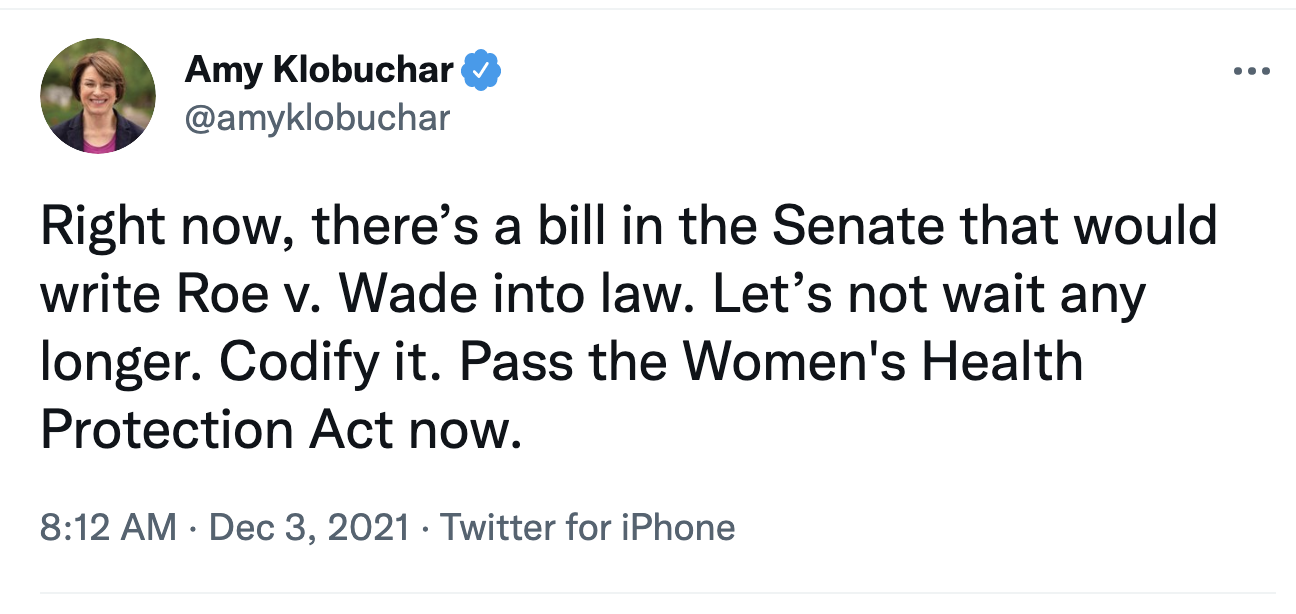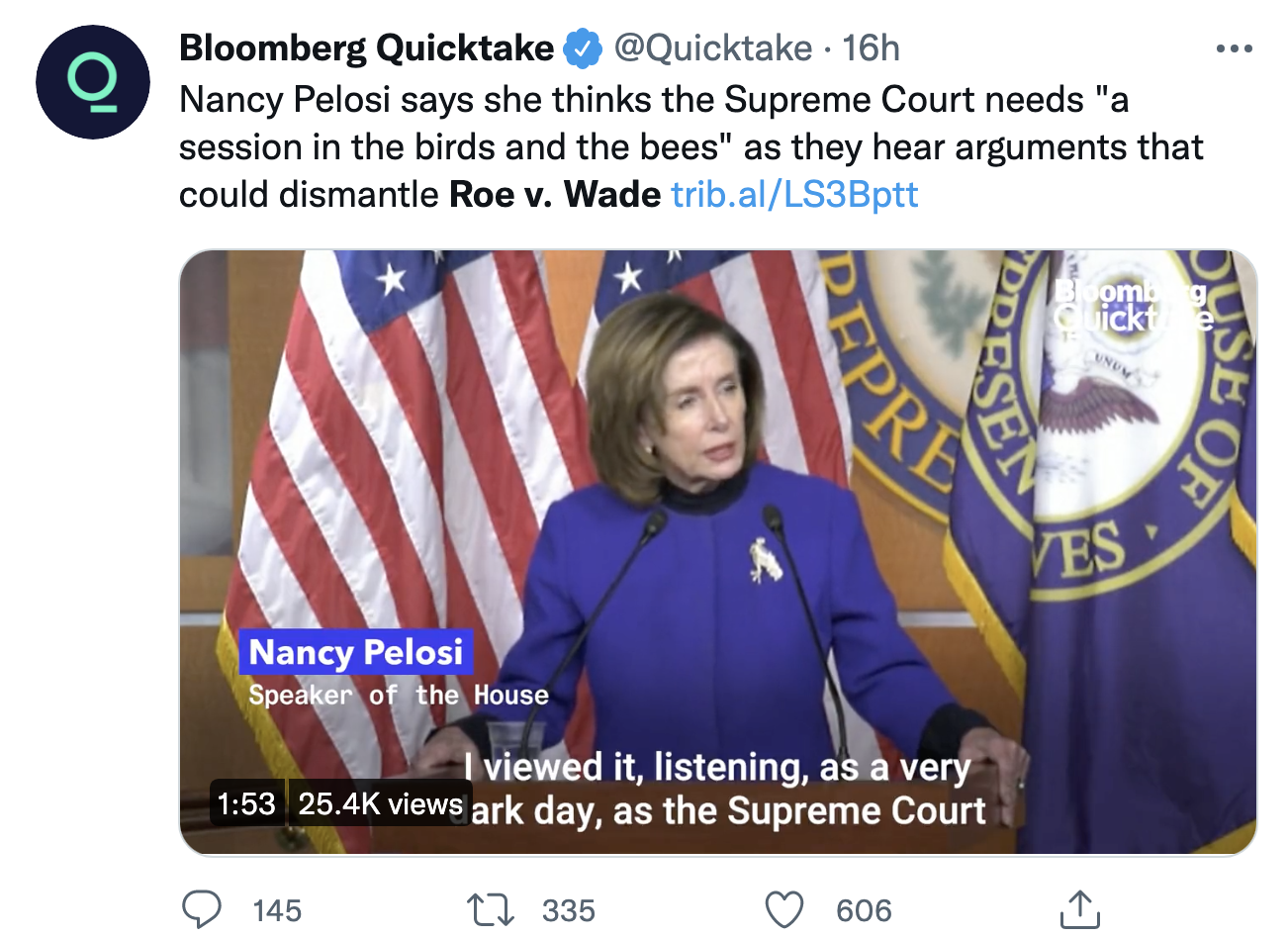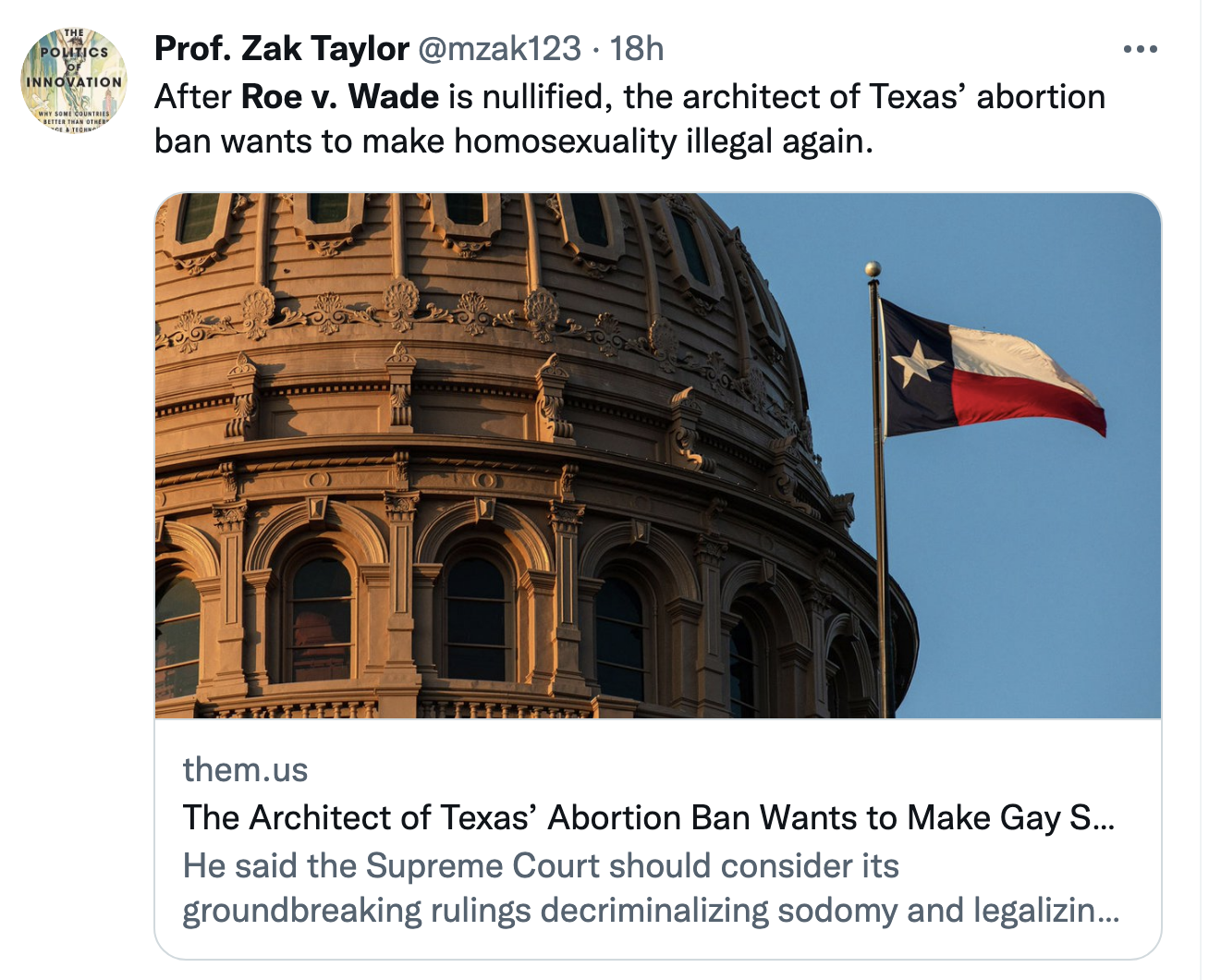If men got pregnant, how long would it take for them to make permanent a person’s right to abortions? The Supreme Court discussion about overturning Roe v. Wade did not even mention men, although we are fairly certain they are at least half responsible for getting a woman there. Perhaps the real issue is whether or not a woman is equal to men.
The senator tweeted:
‘Right now, there’s a bill in the Senate that would write Roe v. Wade into law. Let’s not wait any longer. Codify it. Pass the Women’s Health Protection Act now.’
Senator Amy Klobuchar (D-MN) has a solution. She suggested making the Women’s Health Protection Act a permanent law. Fundamentally, is a woman not able to make decisions about her own body? The six conservative Supreme Court justices will make that decision for them, according to The New Yorker.
It would seem another question is whether old white guys have the right to put women “in their place?” They appear to believe their religious beliefs are more important than women.
Congresswoman after congresswoman told of instances before Roe v. Wade where they knew a woman who died from an illegal abortion prior to 1973 or became infertile as a result. Women will not stop having abortions. They will just retreat to the back alley shadows.
If SCOTUS rolls back #RoeVWade, this won’t fall hardest on people who can afford to go to another state for an abortion—this burden will fall on the most vulnerable among us. We can’t let this happen, and I won’t stop fighting to defend this fundamental right. pic.twitter.com/7BjmAhHh1g
— Elizabeth Warren (@SenWarren) December 3, 2021
Klobuchar stands firmly behind codifying a woman’s right to abortion. So what does that mean?
Boston University wrote:
- ‘Codifying Roe v. Wade would mean passing a law that would affirm a pregnant person’s right to an abortion without undue interference
- The most effective way to codify Roe v. Wade would be for Congress to pass a law, such as the Women’s Health Protection Act, that would be binding for all states. This act was passed in the House on September 24, but it is considered unlikely to pass in the Senate
- Unless Roe v. Wade is codified, blue states will likely decide to codify Roe, while red states will continue to enact restrictions on abortion rights, like the 2021 Texas Abortion Law.’
Boston University law professor Linda McLain explained:
‘So to clarify, Roe v. Wade would mean to pass a law—either state law or federal law—that would affirm a pregnant person’s right to access an abortion without undue interference.’
McLain continued:
‘And the most effective way to codify Roe is probably the least likely, which would be for Congress to pass a law that would be binding on all the states because although particular states could, and already have in some ways, codifying Roe v. Wade, many states will not, and you’ll have the checkerboard we have right now.’
Three White Lions podcast, Gloria Christie reads her week’s most important news/ commentary stories in the liberal online newspaper The Bipartisan Report. Gloria Christie Report her newsletter for people on the go. Written in her own unique style with a twist of humor in a briefer version of Bipartisan Report. Christie’s Mueller Report Adventures In Bite-Sizes a real-life compelling spy mystery (in process). Find her here on Facebook.


















